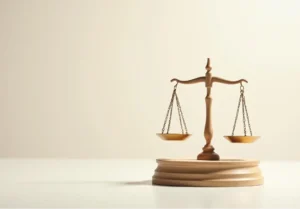
Debt can feel like a heavy anchor in a relationship. But what happens when that anchor belongs to your spouse? The question of responsibility looms large over many marriages, leading to confusion, tension, and sometimes turmoil.
You are not automatically responsible for your spouse’s debt in the U.S., especially if it’s incurred before the marriage or is in their name alone. However, the dynamics can change based on state laws, marital agreements, and other factors. While this answer provides a foundation, the nuances are fascinating and complicated—stick around to uncover surprising details that could impact your situation.
Key Takeaways:
- You generally aren’t responsible for your spouse’s debt if it’s solely in their name, but community property laws may change that in certain states.
- Joint debts, including those incurred during the marriage, are shared responsibilities, so always clarify which debts are marital versus separate.
- Regularly monitor your credit reports and consider separate accounts to protect yourself from being negatively affected by your spouse’s financial decisions.
Disclaimer: The information on this blog is for general educational purposes only and does not constitute personalized financial advice. While we strive for accuracy, FinanceBeacon cannot guarantee the reliability or suitability of the content for your specific financial decisions. Always consult a qualified financial advisor before making any financial choices. Use this information at your own risk.
What is marital property vs. separate property?
The line between marital property and separate property is crucial when addressing debt responsibility in marriage. Marital property includes anything acquired during the marriage—think joint bank accounts, homes, or vehicles—even if only one partner’s name is on the title. In contrast, separate property typically refers to assets owned before the marriage or gifts and inheritances specifically designated for one spouse.
Take, for instance, if your spouse racked up credit card debt while you were married. If the debt was incurred for joint purposes, such as family expenses, both partners might share responsibility, even if it’s in just one spouse’s name. However, if the debt stemmed from personal spending, say on a new car solely for their use, its status as separate property could shield you from liability.
Understanding these distinctions can significantly influence how debts are handled, especially in divorce proceedings. If a debt’s categorized as separate property, the responsible spouse may bear the full brunt, freeing the other from financial repercussions.
How do state laws impact debt liability?
State laws can profoundly shape how debts are divided and assigned in a marriage. There’s a fundamental difference between community property states and equitable distribution states.
Community property states like California and Texas generally assume that most property and debts acquired during the marriage are jointly owned. This means creditors can pursue either spouse for joint debts.
On the flip side, equitable distribution states—like New York and Florida—handle property and debt division based on fairness. The court determines how debts incurred during the marriage will be allocated, taking into account various factors such as the length of the marriage, each spouse’s financial contributions, and future earning potential.
In practical terms, if you live in a community property state, you may be on the hook for your spouse’s debts, assuming they were accrued during the marriage. In equitable distribution states, you might have a chance to argue that you shouldn’t be responsible if the debt is attributed primarily to your spouse’s choices.
Gaining a better grasp of your state’s rules can aid in both managing existing debts and planning for future financial decisions. Always consider consulting with a family law attorney to dive deeper into how local laws can affect you and your spouse’s financial obligations.
What happens to debt during divorce?
Divorce can complicate things, especially when it comes to debt. Generally, in the U.S., debts accrued during the marriage are treated as marital debt, meaning both parties may be responsible for them, regardless of who incurred them. This is particularly true in community property states, where debts acquired during the marriage are evenly split, while in equitable distribution states, the division isn’t always equal but should be fair.
In the divorce process, the court will look at various factors—like each spouse’s financial situation, earning potential, and the length of the marriage—to decide how to divide debts. It’s crucial to clearly understand what debts are classified as marital versus separate. For instance, if one spouse had student loans before marriage, those might be considered separate debt and not included in proceedings, unless they’ve been consolidated or used for joint benefit.
Be mindful of joint accounts; if both names are on an account, both parties can still be held responsible for any debt incurred, even if one spouse makes the charges. Finalizing the divorce doesn’t automatically release either spouse from responsibility for joint debts. If one party fails to pay after the divorce, the other could still face consequences on their credit report.
Consider working with a financial planner or attorney to sort through all debts during the divorce process. They can help ensure you understand your obligations and avoid surprises later.
Are there exceptions for joint debts?
Yes, exceptions exist regarding joint debts, and they’re worth noting because they can significantly impact your financial future. Here are a few critical points to keep in mind:
-
Joint Accounts: Any debts incurred on joint credit cards or loans are typically shared. Both parties are responsible for repayment, regardless of who charged it.
-
Refinancing Options: If one spouse takes on a joint debt and agrees to pay it post-divorce, consider refinancing the loan solely in that spouse’s name. This step can protect the other spouse’s credit but doesn’t absolve them from the debt immediately unless formally stated in court documents.
-
Certain Liabilities: Some obligations, like tax debts or specific court-ordered payments, may also be classified separately, meaning one spouse might bear the responsibility even if they were jointly acquired during the marriage.
-
Post-Divorce Actions: If one spouse fails to meet payment responsibilities on joint debts after the divorce, the other spouse can still be pulled into collections or have their credit harmed. It’s essential to stay organized and track post-divorce compliance with debt obligations.
An effective practical step here is to check your credit reports regularly to monitor your situation and ensure no debts are handled without your knowledge. Using credit monitoring services can keep you in the loop about your financial health after the divorce.
Can one spouse’s debt affect joint credit?
Debt doesn’t just impact the person who incurred it; it can have a ripple effect on the couple’s joint financial health. If you and your spouse have joint accounts or co-signed loans, one partner’s past debts may influence creditor decisions for both of you. A hard truth? Lenders often assess both partners’ financial situations when evaluating applications for credit, mortgages, or other loans.
For instance, if your spouse has a hefty amount in unpaid credit card debt, it might drag both of your credit profiles down. In community property states, debts acquired during the marriage are usually considered joint, meaning you could be held legally responsible even for debts accrued before the marriage in some cases.
To protect each other, it’s wise to keep an open dialogue about individual debts and credit standings. Engage in regular conversations about financial goals, and if you’re considering a significant joint loan, why not check your credit scores together first? This proactive approach lets you know where you both stand and how someone’s debt might dim your chances for that dream home.
What role do credit scores play?
Credit scores are like a financial report card, and they don’t just reflect individual financial behavior; they can reflect your spouse’s too. If one spouse has a low score due to high debt levels or missed payments, it can significantly impact the other spouse, especially when applying for joint loans or credit. When you’re both on the paperwork, lenders analyze the lowest credit score, so one person’s poor credit can hurt both of you.
If you’re worried about your spouse’s credit impacting yours, here’s a practical step: establish separate credit sources. Use individual accounts for any new credit or loans you may need while still maintaining transparent communication about shared finances. Also, regularly check both your credit reports at AnnualCreditReport.com to spot any discrepancies and address them early. Taking charge of your credit now can save you both from headaches later on.
How can you protect yourself against your spouse’s debt?
Protecting yourself from your spouse’s debt is essential for maintaining your financial stability. In community property states, debts incurred during the marriage are often shared, but you’re not always liable for pre-marriage obligations or debts in your spouse’s name. Consider these strategies to safeguard your finances:
-
Separate Accounts : Keep your personal bank accounts distinct from joint accounts. This helps ensure that your income and savings aren’t directly affected by your spouse’s debt.
-
Credit Monitoring : Regularly check your credit reports through annualcreditreport.com. This allows you to spot any unexpected hits against your credit score due to your spouse’s financial actions.
-
Accountability Partnership : If you maintain joint accounts, establish clear agreements on spending limits or essential payments. Regular discussions about your finances can keep both partners accountable.
-
Understand Local Laws : Research whether your state is a community property or common law state. Knowing your state’s rules can clarify your potential liability for your spouse’s debts.
-
Consult a Financial Advisor : A professional can provide tailored advice for your specific situation and help create a plan that prioritizes your financial security.
-
Debt Counseling : Consider seeking assistance from a debt counselor familiar with your state’s laws. They can provide strategies that are effective in your circumstances and help navigate discussions with your spouse.
What should you do if your spouse has significant debt?
Facing your spouse’s significant debt head-on can feel daunting, but open communication is crucial. Here are some practical steps to take:
Start by having an honest conversation about the debt. Approach it in a non-confrontational way; frame it as a team effort. Use “we” language rather than “you” to avoid defensiveness. Share your concerns about how the debt may affect your joint financial goals and daily living.
Next, gather all the information. Understand the total amount owed, interest rates, and types of debts (e.g., credit cards, student loans). This helps you grasp the full picture and makes it easier to develop a strategy together.
Work on a budget together. Outline income, expenses, and debts to see where adjustments can be made. This might involve tightening up discretionary spending or reallocating funds to prioritize debt repayment.
Consider consolidating debts if the interest rates are high. This can lower monthly payments and simplify finances. Be cautious, though; some loans may not yield significant savings or may include fees.
Encourage your spouse to seek professional help if the debt feels overwhelming. Debt counselors can provide guidance on repayment plans and strategies tailored to their unique situation. This can ease the burden and provide structure going forward.
Lastly, keep supporting each other emotionally. Dealing with debt can be stressful, and a little encouragement goes a long way. Make it a joint effort toward a debt-free future; it’s easier to face challenges with a partner by your side.
What are legal resources available for couples facing debt issues?
Debt can feel overwhelming, especially when you’re juggling it with your partner. Whether it’s student loans, credit card debt, or medical bills, understanding your legal responsibilities can really ease some of that stress.
First off, bankruptcy might be a path worth considering. It’s a legal way to discharge debts and can provide a fresh start. If one spouse files, it may affect both of your finances, so it’s important to consult a bankruptcy attorney to grasp how this could impact both your credit and your joint assets.
Another option is debt counseling. Nonprofit credit counseling services offer help—like budgeting advice and negotiating with creditors. Organizations like the National Foundation for Credit Counseling (NFCC) provide valuable resources and referrals to local credit counselors who specialize in debt management.
If you’re looking to get serious about debt negotiation or consolidation, working with a skilled attorney might be the route to take. They can guide you through the processes of negotiating with creditors or even consolidating debts into a single payment, which can simplify everything.
For understanding your specific financial responsibilities, consider resources like the Consumer Financial Protection Bureau (CFPB), which offers tools and information geared toward understanding debts and responsible lending practices.
Finally, don’t overlook state-specific programs that offer legal advice or assistance for managing debt. Checking your state’s bar association can lead you to programs that provide free or low-cost legal assistance for couples tangled in debt issues.
Quick Questions and Answers:
Am I responsible for my spouse’s debt if I didn’t co-sign?
Typically, no. In most cases, you’re not responsible for debts solely in your spouse’s name unless you live in a community property state.
What if we are divorced—am I still liable for my ex-spouse’s debts?
If debts were incurred during the marriage, they may still be your responsibility, depending on your divorce agreement and state laws.
Can creditors come after my spouse for debts incurred before marriage?
Generally, creditors can only go after the individual responsible for the debt unless assets or community property are involved.
How can we find a reputable debt counselor?
Look for counselors accredited by the Council on Accreditation or search through resources like the NFCC website for trusted referrals.
What if my spouse files for bankruptcy?
It may affect your finances, including joint assets. Consulting a legal expert can help you understand the implications for your financial future.
As a financial advisor, my goal is to guide you through the world of personal finance with clear, practical advice. With a dedication to clarity and your financial well-being, I’m here to provide insightful guidance and support as you build a foundation of wealth and security.







